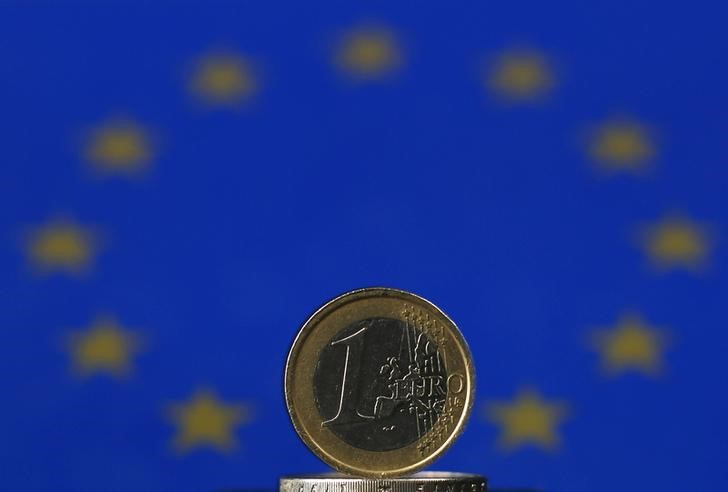By Michelle Martin
BERLIN (Reuters) - German and Spanish consumer prices fell in February but annual inflation in these economies was not as deep in negative territory as in January while prices turned slightly positive in Italy, potentially lifting the euro zone figure slightly.
In Germany, Europe's largest economy, consumer prices harmonised to compare with other European countries fell for a second consecutive month. But at -0.1 percent, the drop was not as marked as last month when prices fell by 0.5 percent, preliminary data from the Federal Statistics Office showed.
That was not as low as the Reuters forecast, which had been for a 0.4 percent drop, but it was still a long way off the European Central Bank's target for close to but just under 2 percent over the medium term in the euro zone.
"Along with the increased values in Spain and Italy, this points to a higher reading for the euro zone inflation figure due to be published on Monday," said Ulrich Wortberg, economist at Helaba bank.
In Spain, EU-harmonised consumer prices fell by 1.2 percent year-on-year in February after dropping by 1.5 percent last month. In Italy the year-on-year rate turned slightly positive after two months of deflation.
Preliminary euro zone inflation data, due out on Monday, is expected to show consumer prices fell by 0.5 percent in the single currency bloc in February after dropping by 0.6 percent last month, according to a Reuters poll.
"Given that the money supply and the credit volume have developed positively recently, the ECB's economic and disinflationary concerns should decrease somewhat ahead of the start of the expanded QE programme," Wortberg said.
Economists said there were no signs of a deflationary trend in Germany, which grew by 0.7 percent at the end of 2014 thanks to private consumption. German workers' paychecks are getting bigger and that, along with low inflation and a robust labour market, is helping to boost private consumption.
Negotiated wages including special payments climbed by 3.2 percent last year - the biggest increase since the statistics were first compiled in 2010 - and Germany's biggest trade union, IG Metall, securing an inflation-busting 3.4 percent wage hike.
But Jennifer McKeown, economist at Capital Economics, said deflation was still a danger in other parts of the euro zone.

"In all, today's data have done little to reduce the threat of deflation in the euro zone and offer ample justification for the ECB's quantitative easing programme," she said, adding it may be too little too late to avoid a period of deflation.